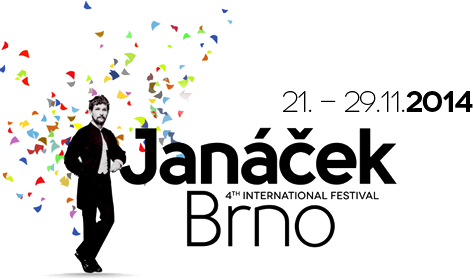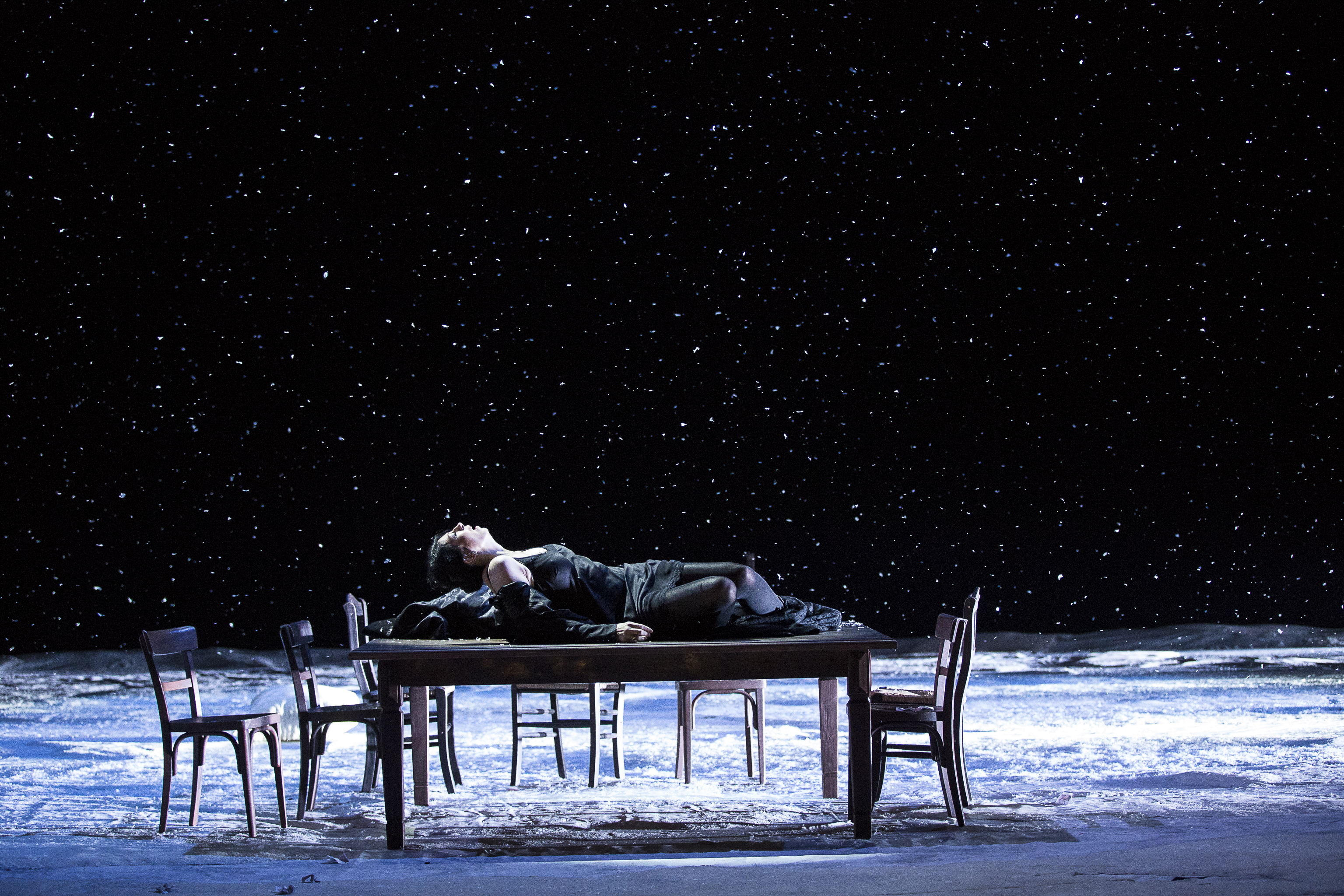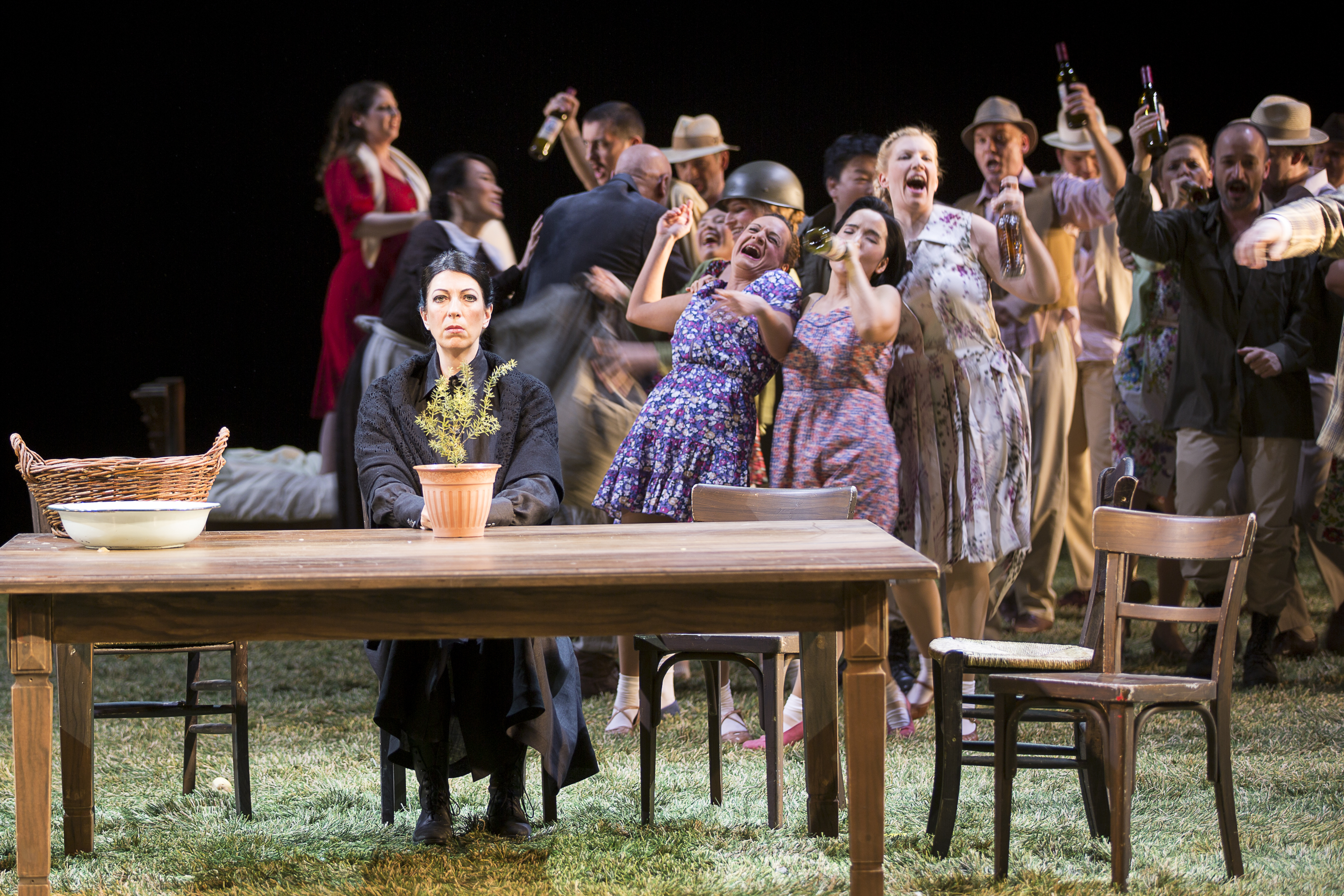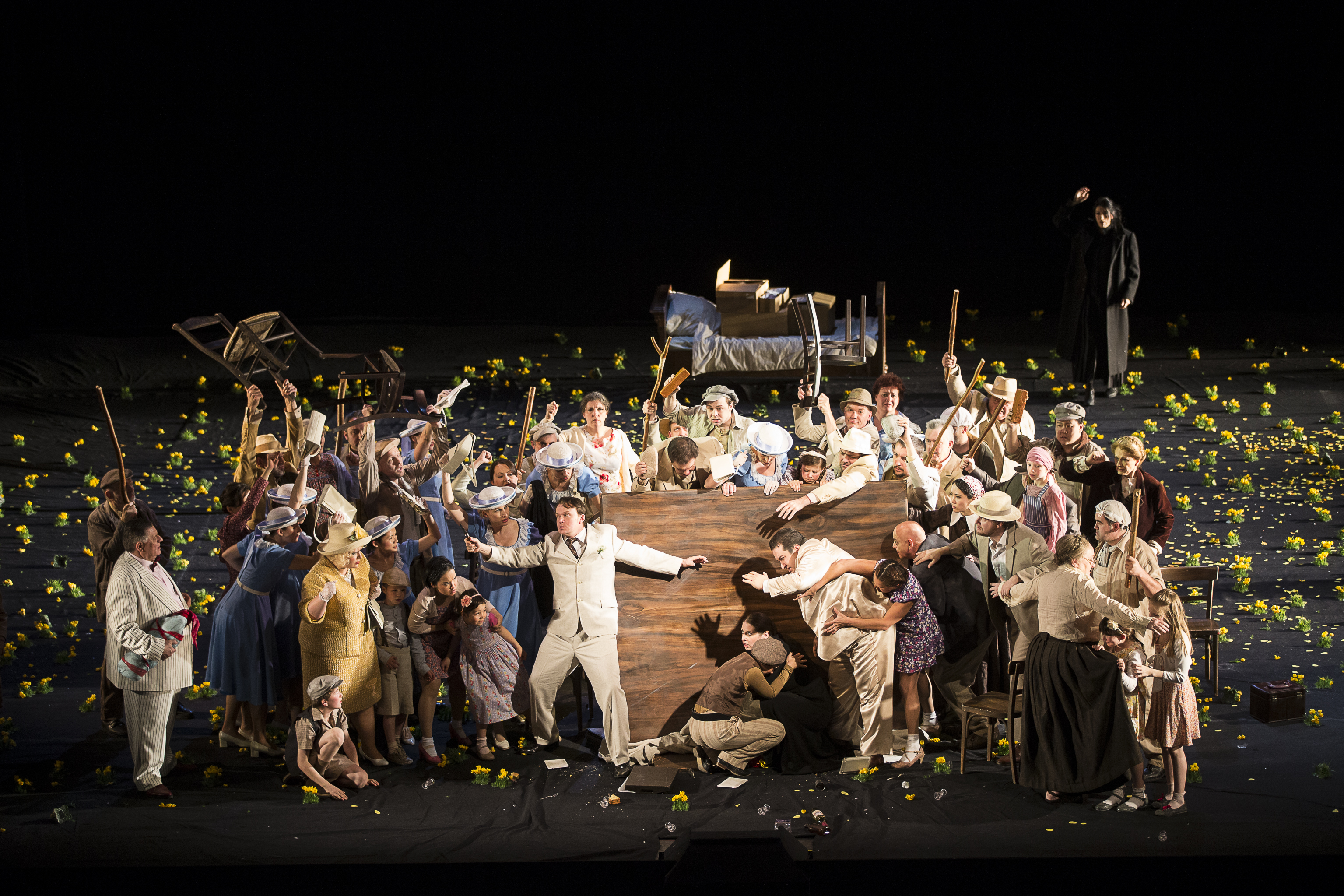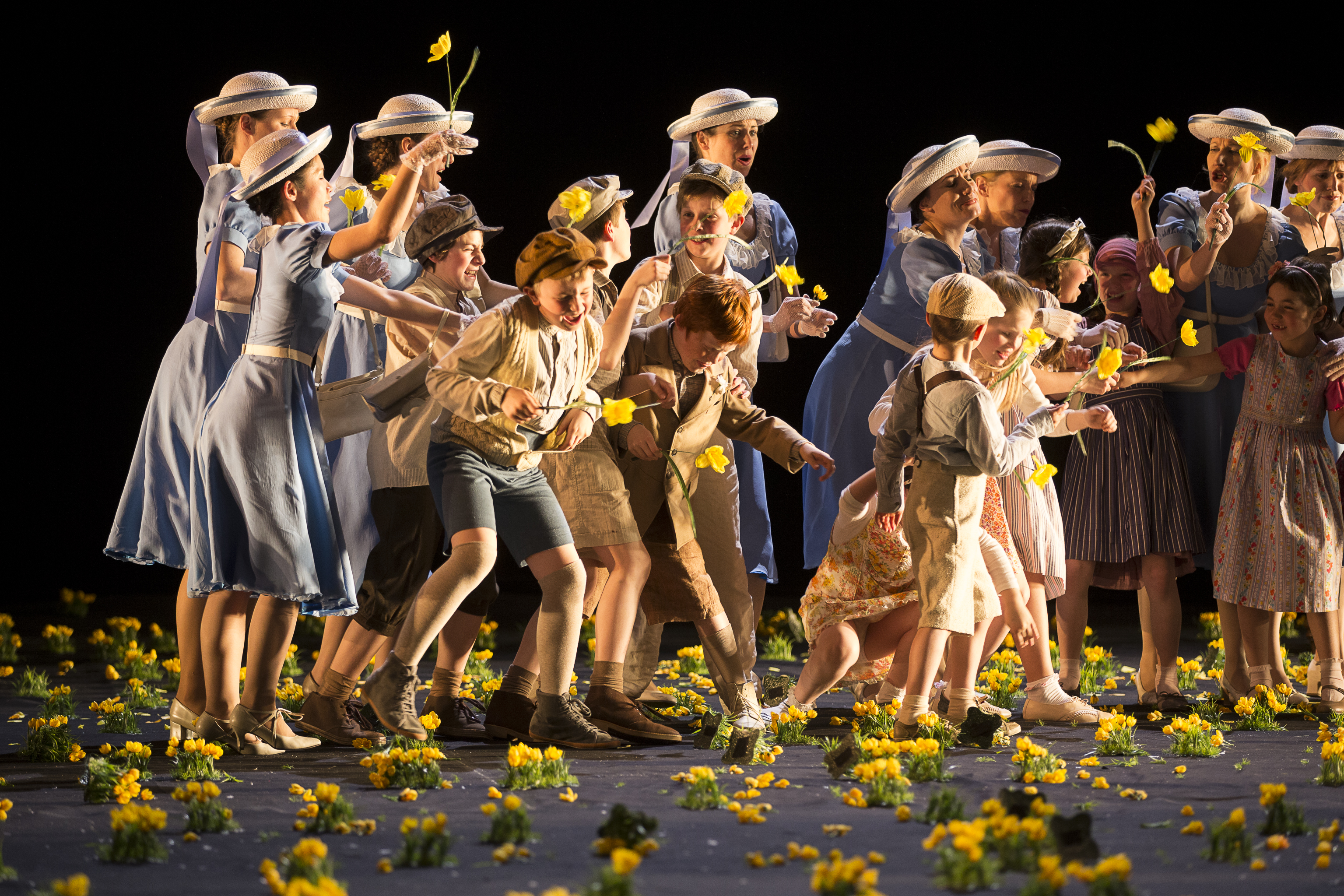Conductor: Dirk Kaftan
Stage director: Peter Konwitschny
Set and Costume design: Johannes Leiacker
Light design: Manfred Voss
Dramaturgy: Bettina Bartz, Bernd Kristin
Laca Klemeň: Ales Briscein
Steva: Taylan Reinhard
Starenka Buryjovka: Iris Vermillion
Jenůfa: Gal James
Starek (Foreman): David McShane
Mayor: Konstantin Sfiris
Mayor´s Wife: Stefanie Hierlmeier
Karolka: Tatjana Miyus
Herdswoman: Fran Lubahn
Servant Girl: Xiaoyi Xu
Jano: Nazanin Ezazi
Aunt: ana Batinic
1. Voice: Hana Batinic
2. Voice: István Szecsi
Violin-Solo: Fuyu Iwaki
Although Jenůfa represents the very beginning of the composer’s journey towards a modern and distinctive form of musical drama, it is his most frequently performed opera (a similar situation to that of Benjamin Britten and his early opera Peter Grimes). Work on Jenůfa placed great demands on Janáček. He found the subject matter for his opera in a play by the young writer Gabriela Preissová which was controversial in its day. The story of the tragic fate of a young woman which is brought about by the prejudices of the time was evidently in keeping with Janáček’s social conscience. In choosing Preissová’s play, however, he also chose a work of prose, which he was the very first composer to employ in an opera. Work on the composition took him a full nine years, starting in 1894. However, it was frequently interrupted because of his enormous workload at the schools where he taught. He completed the opera as his beloved daughter Olga was dying, at the beginning of 1903. The uncertainty associated with the new approach to composition, this tragic event in his personal life and the subsequent rejection of the opera by the Prague National Theatre placed a huge psychological strain on the composer. In the end the premiere was taken on by Brno and its Czech National Theatre. It took place in a now-defunct theatre building on Veveří Street on January 21, 1904 under the baton of C. M. Hrazdira. Although, in view of the limitations of its time, the staging was rather rudimentary, it enjoyed great success. Janáček then went on to rework the opera into its present form in 1906 and 1907. After the Prague (1916) and then Viennese premiere (1918) the work was taken up across the world and it remains one of the most frequently performed operas of the 20th century.




